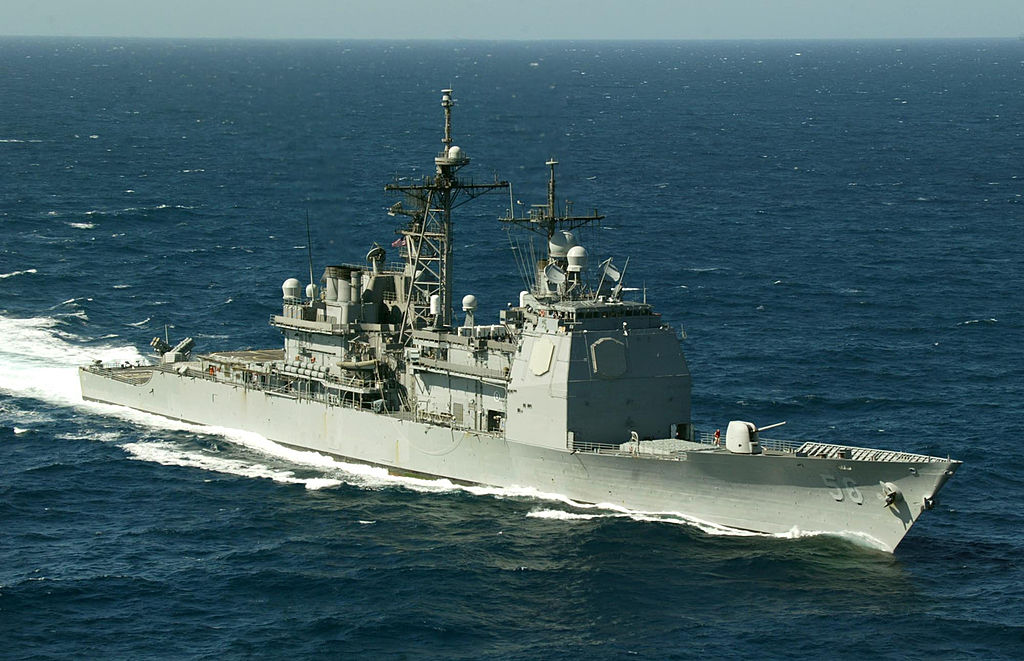
U.S. and U.K. forces have spent the last month attacking Houthi installations in Yemen, in the name of protecting the “freedom of navigation.” As one senior Biden Administration official explained: “The United States has carried a special and historic obligation to help protect and defend these arteries of global trade and commerce. And this action falls directly in line with that tradition.”
Such claims portray the U.S. as the guardian of free seas and defender of the liberal international order. But history complicates this narrative. Since World War II, American policymakers have subscribed to a definition of freedom of the seas that emphasizes U.S. military dominance and access to the world’s oceans for the U.S. fleet. In this militarized view of the concept, U.S. naval power not only depends on freedom of the seas, it’s deployed to defend it too.
This understanding has had consequences. Rather than protecting the world’s oceans, American deployments abroad, in the name of freedom of the seas, have often escalated conflicts. And, instead of consistently advocating for a neutral and lofty principle, the U.S. has often defended it selectively. Nowhere is this clearer than Yemen. While the U.S. is risking escalation to eliminate a Yemeni blockade in the Red Sea, it supported a Saudi Arabian-led naval and economic blockade of Yemen beginning in 2015, with catastrophic consequences.
Throughout the 19th century and into the 20th century, U.S. officials understood freedom of the seas quite differently — as a concept protecting the movement of U.S. shipping in wartime. This definition expanded after World War I, when President Woodrow Wilson began to interpret freedom of the seas as a building block of a new liberal international order that would ensure access to global markets and bring about world peace. He envisioned the League of Nations as a potential collective security force keeping the world’s oceans free for commerce, with the U.S. as an increasingly important beneficiary.
Read More: 'Houthi Attacks Must Stop' Says U.K. Foreign Secretary After Latest Joint Strikes With U.S.
But American ideas soon shifted about who should enforce this freedom. Journalist Henry Luce contended in 1941 that the U.S. should serve as “the principal guarantor” of open seas because protecting free navigation was key to unleashing an expansion of world trade that could produce “such enormous human progress as to stagger the imagination.” Later that year President Franklin D. Roosevelt went even further, arguing that all other freedoms depended on protecting free seas, making this principle a core facet of the postwar U.S.-led international liberal order.
U.S. military dominance underpinned these liberal visions of freely circulating global trade. By the end of World War II, the U.S. had the largest navy in the world by far, with fleets spanning the world’s sea lanes. As a result, the U.S. embraced a militarized version of freedom of the seas — one that soon proved hypocritical.
In 1945, President Harry Truman issued proclamations claiming the resources of the outer continental shelf, extending U.S. sovereignty over thousands of miles of ocean in an endeavor that many saw as threatening to freedom of the seas. Historian David Bosco described the move as “a unilateral change to the understood rules for the oceans.” Similarly, during the 1950s, the U.S.’s purported commitment to freedom of the seas didn’t prevent Secretary of State John Foster Dulles from advocating for high seas inspections of vessels suspected of supplying communist China and the left-leaning government in Guatemala.
American officials did embrace international institutions and international law when they thought they could advance the U.S. version of freedom of the seas. During decades of drawn out negotiations over the U.N. Convention on the Law of the Sea (UNCLOS), both the U.S. and the Soviet Union were determined to ensure the freedom of navigation for their strategic military and economic interests.
Yet, the U.S. would not permit other countries to safeguard their own interests on the seas like it did, for fear that this would threaten American access to the world’s oceans. When coastal states like Algeria and Indonesia attempted to extend sovereign control over nearby waters in the 1970s, Secretary of State Henry Kissinger warned that the principle of freedom of the seas was under threat.
And the U.S. moved swiftly to challenge the legitimacy of these states’ claims with military force. Asserting that they violated international law, the Carter administration began sending warships through other states’ territorial waters. These “freedom of navigation operations” demonstrated that the U.S. intended to enforce its definition of freedom of the seas through naval power.
Almost immediately, this aggressive action produced military skirmishes. In multiple incidents in the 1980s, U.S. warships clashed with Libyan forces around the Gulf of Sidra. Meanwhile, in 1988, U.S. and Soviet ships collided during a freedom of navigation operation in the Black Sea, illustrating the risks that such operations could pose.
Read More: Who Are the Houthi Rebels? Red Sea Attacks Result in U.S. and U.K. Strikes on Yemen
That didn’t stop the Reagan administration from going a step further — sending U.S. forces to intervene in a war in the name of freedom of navigation. In what became known as the tanker war, Reagan deployed American warships to the Persian Gulf to protect oil tankers as they came under fire from both belligerents during the Iran-Iraq war. In 1987, the administration reflagged Kuwaiti oil tankers under U.S. flags, qualifying them for naval protection. American policymakers claimed they were protecting freedom of the seas, but many commentators saw the move as a tilt in favor of Iraq, which Kuwait supported.
The move proved ineffectual from the start. A newly reflagged oil tanker struck a mine in its first convoyed foray into the Gulf. Meanwhile, Iranian and U.S. forces engaged in multiple skirmishes, and Iranian attacks on oil tankers only increased — probably in response to the U.S. presence.
Worse still, U.S. intervention culminated in two tragic incidents of mistaken identity. In 1987, the Iraqi Air Force accidentally shot two missiles at the USS Stark, killing 37 American sailors. The next year, U.S. forces mistakenly shot down an Iran Air passenger airplane, killing all 290 people on board.
Not only did Reagan’s policy escalate the maritime conflict and lead to the deaths of hundreds of civilians, it resulted in an expanded U.S. military presence in the Gulf that has persisted to the present day.
These American military actions in the 1970s and 1980s revealed the paradox of the U.S.’s post-World War II understanding of freedom of the seas. While policymakers insisted they were protecting a crucial pillar of the liberal international order, this principle became a justification for the U.S. to police the oceans — often in ways that fueled military conflict. Further, the U.S. carried out this role selectively, protecting freedom of navigation for American ships and U.S. allies while excluding countries under U.S. sanctions or embargoes like Iran or Cuba.

The current situation in the Middle East is emblematic of this vision: when Defense Secretary Lloyd Austin launched Operation Prosperity Guardian, the first U.S.-led response to Houthi attacks on commercial ships, he argued that the Houthi escalation threatened “the free flow of commerce, endangers innocent mariners, and violates international law.” But the U.S. has accepted its ally, Israel, maintaining a unilateral naval blockade of Gaza for the past 16 years.
Now the U.S.’s selective and militarized version of freedom of the seas risks escalating the conflict further. Airstrikes against the Houthis are unlikely to eliminate the threat to shipping in the Red Sea and may instead strengthen the Houthis’ position in Yemen. And the U.S has diplomatic avenues available that it could pursue. But to do so, American policymakers will need to reconsider their longstanding definition of freedom of the seas and give up their vision of the U.S. as the world’s naval policeman.
Grace Easterly is a PhD student in history at the University of Connecticut.
Made by History takes readers beyond the headlines with articles written and edited by professional historians. Learn more about Made by History at TIME here. Opinions expressed do not necessarily reflect the views of TIME editors.
More Must-Reads from TIME
- Donald Trump Is TIME's 2024 Person of the Year
- Why We Chose Trump as Person of the Year
- Is Intermittent Fasting Good or Bad for You?
- The 100 Must-Read Books of 2024
- The 20 Best Christmas TV Episodes
- Column: If Optimism Feels Ridiculous Now, Try Hope
- The Future of Climate Action Is Trade Policy
- Merle Bombardieri Is Helping People Make the Baby Decision
Write to Made by History / Grace Easterly at madebyhistory@time.com
